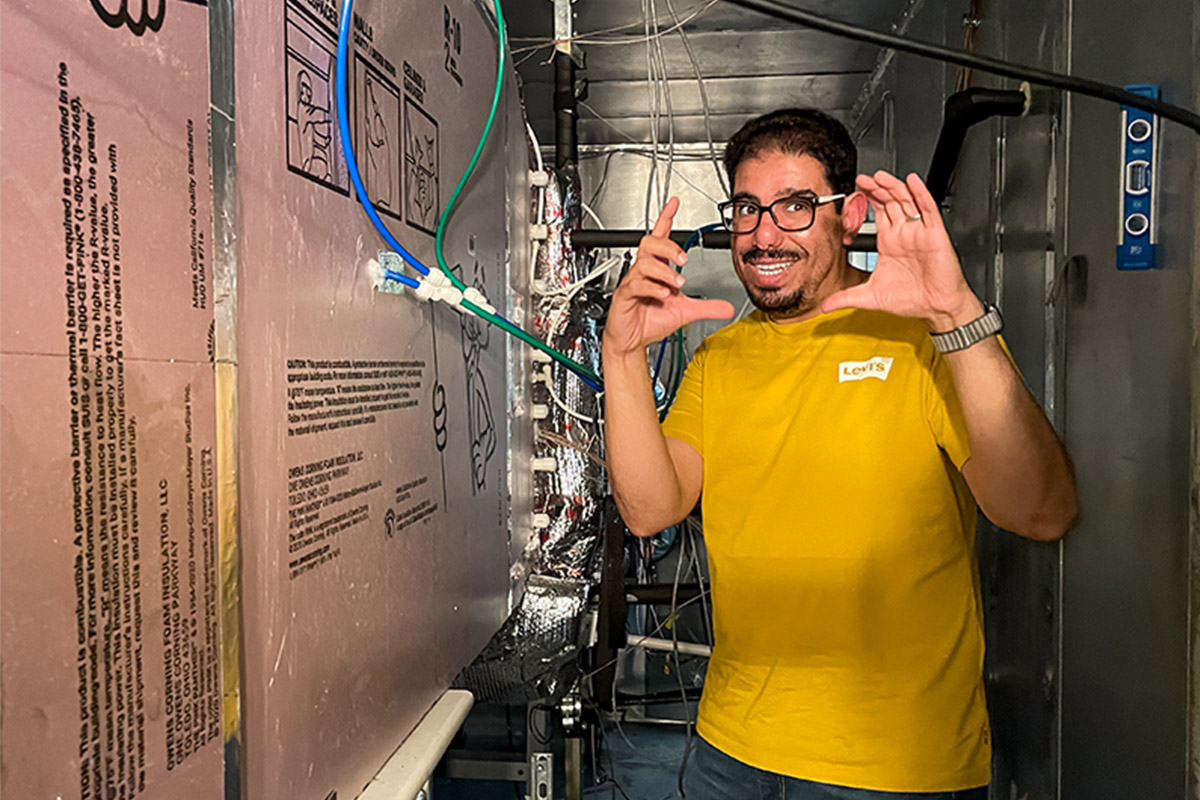Student Feature Friday with Khaled Alghamdi
Thursday, August 17, 2023
Meet Khaled Alghamdi, a 5th year PhD student set to graduate in the spring of 2024. Humble yet passionate, Khaled has a creative set of hobbies. He reads for at least an hour a day, finding it opens him up to many connections. If you ask this well-rounded mind to recommend a book, he will hand you a book about economics, psychology, or even politics. He also enjoys photographing animals and sometimes mountain landscapes.
Khaled’s work is geared toward a promising solution for enhancing the efficiency and flexibility of residential heating and air-conditioning systems. It started with a computer model of a concept called TriCoil™, a novel three-fluid heat exchanger (Alghamdi et al., 2023). Now he is working to develop a vapor-compression system that integrates water-based thermal energy storage using TriCoil™ (Alghamdi et al., 2022). In essence, TriCoil™ takes advantage of its unique design, which allows for simultaneous heat exchange between three different fluids: refrigerant, water, and air. The design enables the system to store thermal energy by transferring heat between these fluids, which can be used for load shifting. During times when there is excess energy available (such as from renewable energy sources like solar and wind energy), the TriCoil™ system can absorb and store this as thermal energy in the water. Later, when needed, this stored thermal energy can be released to provide heating or cooling, thus shifting the energy consumption to more favorable times and helping with load management.
His recent publication is a dive into this, and the experimental validation of the model is discussed (Alghamdi et al., 2023). Khaled’s research work aims to provide insights into improving the efficiency and feasibility of incorporating thermal energy storage into current residential HVAC systems, ultimately contributing to more sustainable and cost-effective energy use in homes. He also has a conference paper which reviews the literature for vapor-compression systems integrating water-based thermal energy storage for heating and air-conditioning application in residential buildings (Alghamdi et al., 2022). Additionally, it shows his studies on the potential of water-based thermal energy storage for shifting loads of heating and cooling. They picked varying locations across the United States, selecting ones that display the different climates found across the country.
With a firm belief in the positive impact of his work, he states, “I am passionate about heating, ventilating, and air-conditioning systems because they directly impact people’s lives, and I would like to make a positive impact.” Khaled envisions his research playing a vital role in mitigating the energy supply-demand discrepancy associated with renewable resources. His work on this groundbreaking system not only holds promise in the realm of heating and cooling applications but also opens avenues for diverse applications. As he prepares to embark on his career at Taif University, Khaled is poised to merge his expertise with sustainable energy policy, ensuring a brighter, cleaner energy future for all.
References:
Alghamdi, K. I., Bach, C. K., & Spitler, J. D., 2022. Water-Based Thermal Energy Storage for Heating and Air-Conditioning Applications in Residential Buildings: Review and Preliminary Study. International Refrigeration and Air Conditioning Conference. Paper 2345. https://docs.lib.purdue.edu/iracc/2345
Alghamdi, K. I., Bach, C. K., Spitler, J. D., & Istiaque, F., 2023. Modeling, Simulating, and Validating a Novel Three-Fluid Heat Exchanger (TriCoil™™) for a Residential Heating and Air-Conditioning System Integrating Water-Based Thermal Energy Storage. Available at SSRN: http://dx.doi.org/

